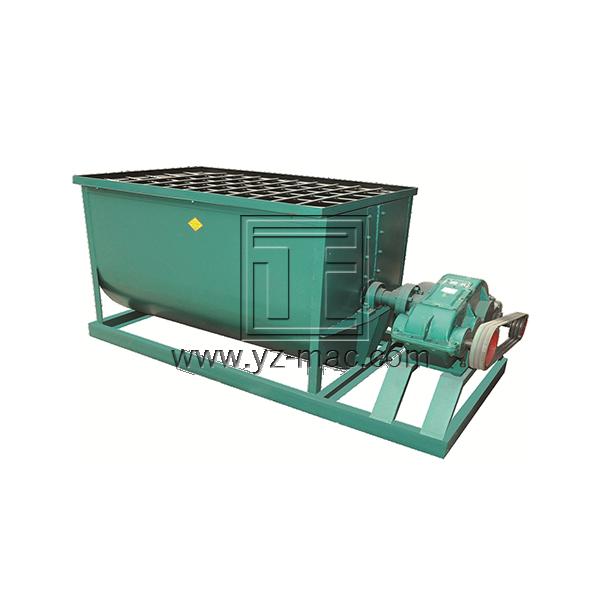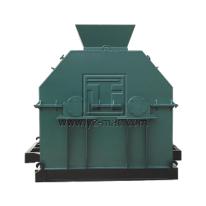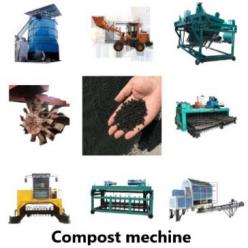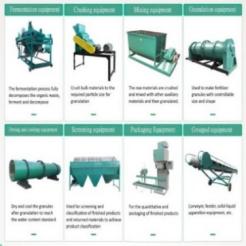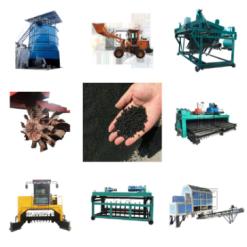Organic fertilizer making machine
An organic fertilizer making machine is a crucial tool in sustainable agriculture, enabling the production of high-quality organic fertilizers from organic waste materials. This machine plays a significant role in recycling organic waste, reducing environmental pollution, and promoting soil health.
The Importance of Organic Fertilizer:
Organic fertilizer is derived from natural sources such as animal manure, plant residues, food waste, and compost. It provides essential nutrients to plants in a slow-release form, enriches the soil with organic matter, improves soil structure, and enhances microbial activity. Organic fertilizers contribute to sustainable agriculture practices by promoting plant growth, minimizing the use of synthetic chemicals, and reducing environmental impacts.
Benefits of Using an Organic Fertilizer Making Machine:
Efficient Conversion of Organic Waste: An organic fertilizer making machine efficiently converts organic waste materials, including crop residues, livestock manure, and food waste, into valuable organic fertilizers. It provides a sustainable solution for recycling organic waste and prevents its accumulation in landfills, minimizing environmental pollution.
Nutrient-Rich Organic Fertilizers: The organic fertilizer making machine enables the production of nutrient-rich organic fertilizers. By processing organic waste materials, it transforms them into a concentrated form of organic nutrients, including nitrogen (N), phosphorus (P), and potassium (K), along with micronutrients essential for plant growth.
Customizable Formulations: Organic fertilizer making machines often offer the flexibility to customize the fertilizer formulations based on specific crop requirements. Farmers can adjust the nutrient ratios and add beneficial additives to tailor the organic fertilizers to meet the needs of different plants and soil conditions.
Sustainable Soil Management: Organic fertilizers produced by these machines enhance soil fertility, improve soil structure, and promote the growth of beneficial soil microorganisms. They contribute to sustainable soil management by replenishing organic matter, retaining moisture, reducing soil erosion, and supporting long-term soil health.
Applications of Organic Fertilizer Making Machines:
Agriculture and Horticulture: Organic fertilizer making machines are extensively used in agriculture and horticulture for the production of organic fertilizers. Farmers can convert farm residues, animal manure, and other organic waste materials into nutrient-rich fertilizers to nourish crops, promote sustainable farming practices, and minimize the use of synthetic fertilizers.
Organic Farming: Organic fertilizer making machines are integral to organic farming systems, where the use of synthetic chemicals is minimized or eliminated. These machines enable organic farmers to produce organic fertilizers from on-farm resources, fostering soil fertility, ecological balance, and sustainable agricultural production.
Compost Production: Organic fertilizer making machines are often used in conjunction with composting processes. They help process composted organic materials, such as composted manure, green waste, and food scraps, into refined organic fertilizers. This ensures the availability of nutrient-rich organic amendments for soil enrichment and crop production.
Land Rehabilitation: In land rehabilitation projects, organic fertilizer making machines can be employed to convert organic waste materials into organic fertilizers. These fertilizers are applied to degraded soils or areas affected by mining or construction activities to improve soil quality, restore nutrients, and support vegetation establishment.
An organic fertilizer making machine is a vital tool in sustainable agriculture, enabling the production of nutrient-rich organic fertilizers from organic waste materials. By converting organic waste into valuable fertilizers, these machines contribute to environmental sustainability, soil health, and crop productivity. Their applications range from agriculture and horticulture to organic farming, compost production, and land rehabilitation.



